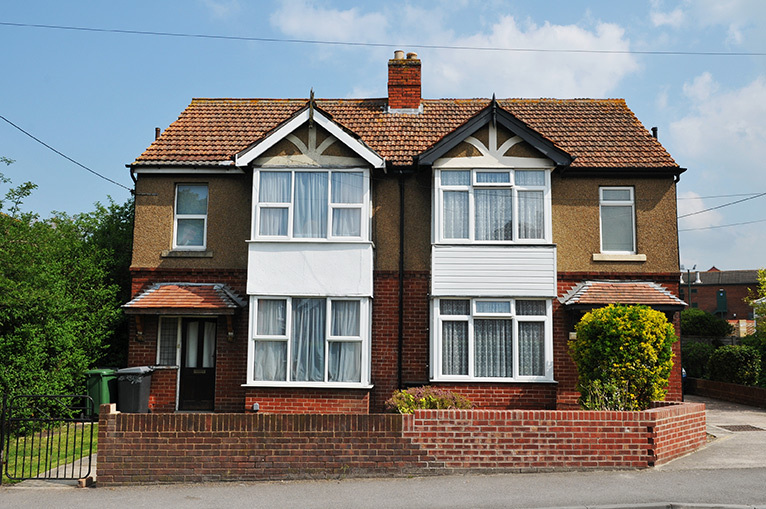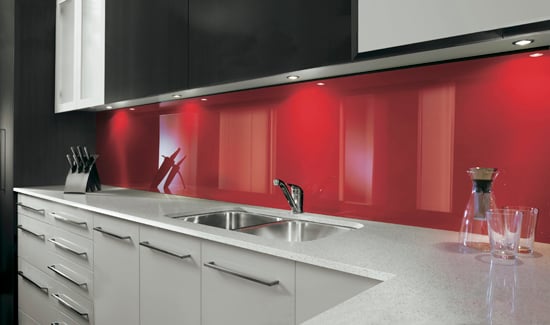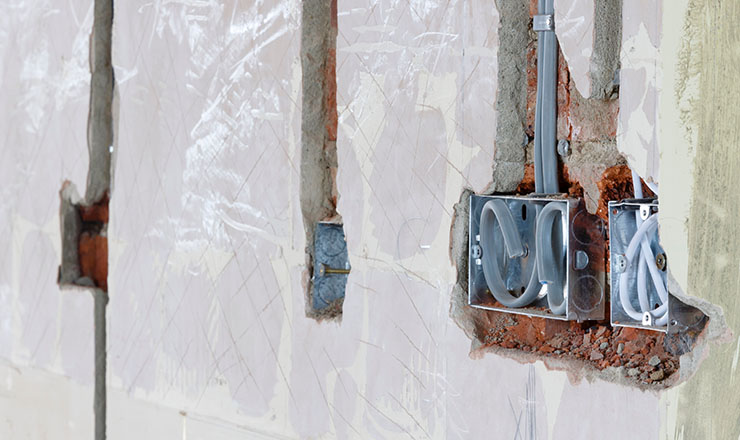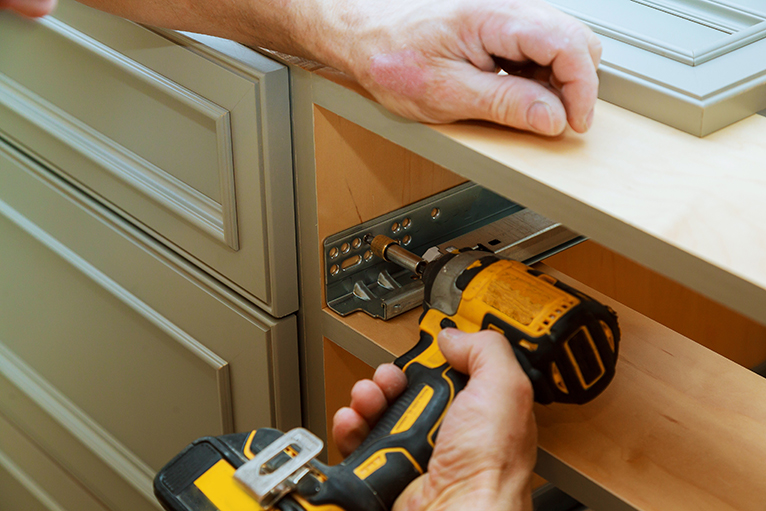Cost-of-living crisis: home improvements on a budget

We know times are tough at the moment. If you’re planning to get work done to your home, but are worried about rising costs, the below advice could help you budget more effectively, so that you don’t have to give up on creating your dream home, one small renovation at a time!
1. Don’t underestimate lighter refurbs

Small refurbishments can go a long way to turning your house into a brand new space.
For example, if your kitchen is starting to look worn out, a few well-installed elements such as new splashbacks or worktops can make a big difference, without you having to redo the whole space, which can get expensive. For budget renovations, keep costs at bay by avoiding projects that require moving structural elements, as these can cause costs to skyrocket for extra plumbing and electrics.
Similarly, hiring a painter and decorator to freshen up your walls can help bring a new lease of life to your home, and for a relatively small cost. Painting the outside of your home can also increase its kerb appeal.
Lastly, when it comes to budget home improvements, interior design is your best friend. Cheaper materials can be disguised by adding a few featured pieces that stand out and make your renovation look more luxurious. Reorganising your space more effectively can also help you make the most of what you already have, without having to spend large amounts of money on renovations.
2. Always plan ahead

The best thing you can do if you’re on a budget is to plan meticulously ahead of the project starting. Sticking to a well-thought-out plan will ensure you don’t spend more than you bargained for, especially since unexpected costs can raise prices considerably.
Be aware of potential additional costs, and account for them. This will ensure you don’t get a nasty shock when costs suddenly skyrocket. One example of this is if you’re living in an old home that might require plumbing and rewiring updates before new building works can take place. Another example is planning permission fees, that a lot of homeowners aren’t aware of.
On top of this, the more you plan and commit to your idea, the less likely you are to change your mind further down the line, resulting in additional costs to make changes or even start completely from scratch again.
Hiring an architect can really help you budget effectively too, as they can make sure you make the most of your money, and cut back on costs where possible.
3. Invest in energy saving features

Energy saving home improvements often pay themselves back within a couple of years, making them a worthwhile investment for anyone looking to save money, especially since they often add value to your property as well.
For example, loft insulation can save you up to £580 a year in energy bills, paying itself back in under two years! For more information on energy saving home improvements you should be making now to cut back on your bills, read our blog on the topic here.
Alongside energy efficient home improvements, we recommend you also replace any old appliances with more modern, low-consumption models. Prioritise dryers and refrigerators first, as these are the most energy intensive.
To help you install your new, energy-saving appliances, why not hire a trusted handyperson to do the job for you? You can do so here:
Many homeowners are also eligible for energy grants, which could help you further reduce costs. Visit the Government website for more information on energy grants.
4. Be thrifty

The best way to save money is to make the most of what you already have. If you’re renovating your bathroom, reusing materials that are still in good condition rather than replacing everything can help you cut down on costs. If your taps are still looking good, why not keep them!
Connected to this, buying items second hand or ex-display rather than brand new is a great way to renovate on a budget, especially since a lot of second hand items are often sold in very good condition.
If you’re buying second hand, there’s no reason why you shouldn’t sell your old appliances and furniture too, in order to make some money back to spend on your new renovation.
Lastly, make sure you do your research, and explore the relevant sales that could help you catch a few bargains on materials.
5. Always hire skilled labour

When we renovate on a budget, it’s tempting to try and get the best deal, even at the cost of quality. However, it’s absolutely vital that you hire skilled labour to get the job done right the first time round. If the job is done poorly, this will almost certainly result in further costs down the line in damages or replacements. In other words, if it sounds too good to be true, it probably is!
Where you can, consider trying your hand at a bit of DIY, as this can also help you reduce costs. If you don’t feel confident with a hammer, leave the building to the experts.
At Rated People, we work hard to connect homeowners with quality tradespeople, the five star rated kind. If you’re ready to start your new home improvement project, click on the link below to hire a skilled tradesperson.
And always request several quotes. Shopping around will allow you to gain a good understanding of what a project could cost you, so that you can settle on a quote you’ll be happy with.




